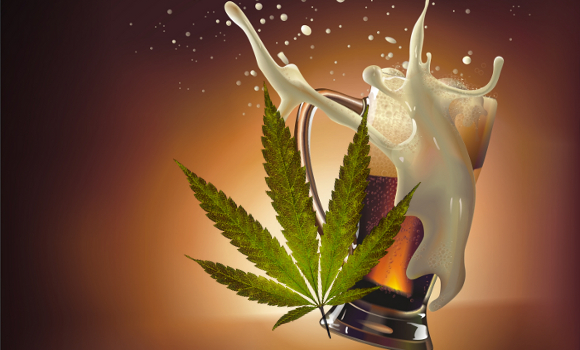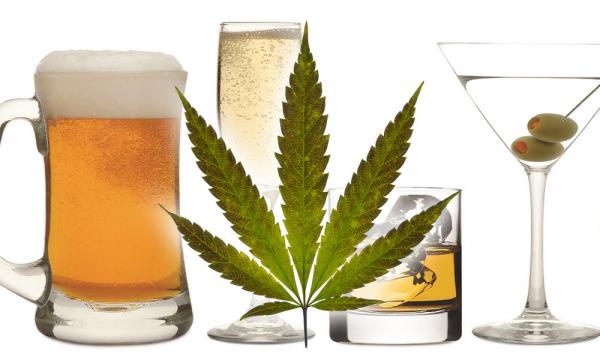It’s a tough call, but based on the science, there appears to be a clear answer. Keep in mind that there are dozens of factors to account for, including how the substances affect your heart, brain, and behavior, and how likely you are to get hooked. Time is important, while some effects are noticeable immediately, others only begin to crop up after months or years of use. The comparison is slightly unfair for another reason is while scientists have been researching the effects of alcohol for decades, the science of cannabis is a lot murkier because of its mostly illegal status.
In 2014, a ton of people died from alcohol-induced causes in the United States and that does not count drinking-related accidents or homicides. If those deaths were included, the number would be closer to 100,000, according to the Centers for Disease Control and Prevention. Meanwhile, no deaths from cannabis overdoses have been reported, according to the Drug Enforcement Administration. A new study of more than 70,000 Americans, published in the American Journal of Public Health, found that healthy cannabis users were not more likely to die earlier than healthy people who did not use cannabis.Unlike alcohol, which slows your heart rate, cannabis speeds it up, which could negatively affect the heart in the short term says a marijuana doctor who studied medical cannabis for 35 years. Still, the largest-ever report on cannabis from the National Academies of Sciences, released in January and read by most cannabis doctors in Florida and other states, found insufficient evidence to support or refute the idea that cannabis may increase the overall risk of a heart attack. On the other hand, low to moderate drinking about one drink a day has been linked with a lower risk of heart attack and stroke compared with non use. A director at Alcohol Research UK, told The Guardian that those findings should be taken with a grain of salt since any protective effects tend to be canceled out by even occasional bouts of heavier drinking. Get Started.
In November, a group of the nation’s top cancer doctors issued a statement asking people to drink less. They cited strong evidence that drinking alcohol as little as a glass of wine or beer a day increases the risk of developing both pre and postmenopausal breast cancer. The US Department of Health lists alcohol as a known human carcinogen. Research highlighted by the National Cancer Institute suggests that the more alcohol you drink — particularly the more you drink regularly — the higher your risk of developing cancer. Florida marijuana doctors stated some research initially suggested a link between smoking and lung cancer, but that has been debunked. The January report found that cannabis was not connected to any increased risk of the lung cancers or head and neck cancers tied to smoking cigarettes. If you are interested in knowing how to qualify for medical marijuana in Florida, contact a cannabis doctor near you.
A research note published by the National Highway Traffic Safety Administration found that, when adjusting for other factors, having a detectable amount of THC (the main psychoactive ingredient in cannabis) in your blood did not increase the risk of being involved in a car crash. Having a blood-alcohol level of at least .05, on the other hand, increased that risk. Still, combining the two appears to have the worst results. The risk from driving under the influence of both alcohol and cannabis is greater than the risk of driving under the influence of either alone,” the authors of a review written in the American Journal of Addiction.
It’s impossible to say whether drinking alcohol or using cannabis causes violence, but several studies suggest a link between alcohol and violent behavior.According to the National Council on Alcoholism and Drug Dependence, alcohol is a factor of all violent crimes, and a study of college students found that the rates of mental and physical abuse were higher on days when couples drank. On the other hand, no such relationship appears to exist for cannabis. A recent study looking at cannabis use and intimate partner violence in the first decade of marriage found that cannabis users were significantly less likely to commit violence against a partner than those who did not use the drug.
Both cannabis and alcohol temporarily impair your memory, and alcohol can cause blackouts by rendering the brain incapable of forming memories. The most severe long-term effects are seen in heavy, chronic, or binge users who begin using in their teens. Studies have found that these effects can persist for several weeks after stopping use so Florida medical cannabis doctors say, as well as many other physicians nationwide. There may also be a link between daily weed use and poorer verbal memory in adults who start smoking at a young age. Chronic drinkers display reductions in memory, attention, and planning, as well as impaired emotional processes and social cognition and these can persist even after years of abstinence say a writer for All Natural Medical Solutions.



